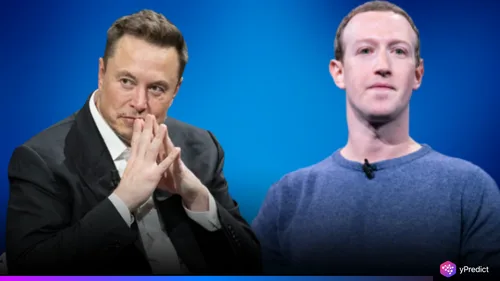
Elon Musk has once again made headlines in his ongoing feud with OpenAI. According to a court filing this week, Musk sought the help of Meta CEO Mark Zuckerberg to support his Musk OpenAI bid, which aimed to acquire the AI startup at a staggering $97.4 billion valuation. However, Zuckerberg did not join the deal, leaving Musk to pursue the effort without Meta’s involvement.
This new development gives the rivalry between the two billionaires an unexpected new twist. Musk and Zuckerberg are both competing interests centered around artificial intelligence, with Musk’s now xAI competition developing its own generative AIs while Meta continues to build on open-source AI. The filing illustrates how high the stakes are as the world’s most influential entrepreneurs tussle over the future of AI innovations and market share.
The Musk OpenAI bid is central to a broader legal battle that has escalated between Musk and OpenAI. The court filing not only highlights private Zuckerberg OpenAI talks but also underscores how intertwined competition and cooperation have become in the race to control cutting-edge AI.
Inside the filing: Musk’s outreach to Zuckerberg
OpenAI stated that Musk disclosed his communications with Zuckerberg during sworn interrogations. The filing suggests that Musk explored potential financing or investment support from Meta, which would have given his consortium’s Musk OpenAI bid more weight.
OpenAI argued that documents and internal communications from Meta related to the takeover attempt could shed light on the motivations behind Musk’s move. The company has asked a federal judge to compel Meta to share these records, saying that the interactions between two of its fiercest rivals are critical to understanding the bid’s intent.
Meta, however, dismissed the request. In its response, the company insisted that OpenAI should obtain any relevant details directly from Musk and his startup xAI. Meta claimed that its own internal discussions were not relevant to the current litigation, signaling its intent to distance itself from Musk’s aggressive approach.
The broader legal clash between Musk and OpenAI
The legal situation surrounding OpenAI has been ongoing since Musk initially filed suit against the company and its CEO, Sam Altman, last year arguing OpenAI’s shift from a nonprofit research organization to a capped-profit organization (for purposes of an upcoming jury trial) violated its founding mission of open research.
In April 2025, OpenAI counter-sued Musk for false claims and for efforts to harm the company in an apparent attempt to purchase the company through media statements, and what the company termed in its lawsuit as a sham takeover.
A ruling earlier this month by U.S. District Judge Yvonne Gonzalez Rogers that Musk would have to answer the counterclaims opened the door for the scheduled jury trial for spring 2026. The Musk OpenAI bid has become an area of focus in the dispute, with OpenAI asserting that Musk’s actions were designed to harm the company so that he could gain advantage for his competing business venture, xAI.
Why Zuckerberg declined to participate
While the filing doesn’t specify Zuckerberg’s reasoning, analysts point out that joining Musk’s consortium would have been a risky move. Meta is already embroiled in fierce competition with both OpenAI and xAI, and backing Musk would have hurt Meta’s position as a leader in open-source AI.
In addition, Zuckerberg has frequently adopted a different position than Musk regarding the trajectory of AI development. While Musk emphasizes safety considerations and long-term existential risks, Zuckerberg has tended to focus more on to accessibility and scaling AI technologies, which would likely have factored into the result of the Zuckerberg OpenAI talks and potential partnership.
The high-stakes AI power struggle
The filings show just how complicated the battle for AI dominance has gotten. For several of the tech behemoths, it is not simply developing their models; they are embedding operational directives into alliances, lawsuits, and ultimately billion-dollar offers to gain leverage.
The Musk OpenAI bid was both strategic for Musk, as a consequence to a company he co-founded but eventually turned against, and symbolic to what he sought to demonstrate. By rejecting the invitation, Zuckerberg emphasized Meta’s desire to follow its own path in the AI landscape, rather than supporting Musk’s radical approach.
Looking ahead to the 2026 trial
With a jury trial scheduled for 2026, the court fight will likely reveal additional information not just about how Silicon Valley’s most powerful players are playing the sideshow behind the scenes, but also about the role of personal rivalries that could influence the future of AI. It is likely that the OpenAI legal battle will test corporate strategies, but also the personal antagonism of the players involved.
What is clear, however, is the battle between Musk and OpenAI and potentially Zuckerberg too is just beginning. The world’s most powerful technology leaders are putting billions into bets on artificial intelligence and their actions will not only influence markets but also the acceleration of global AI adoption.





